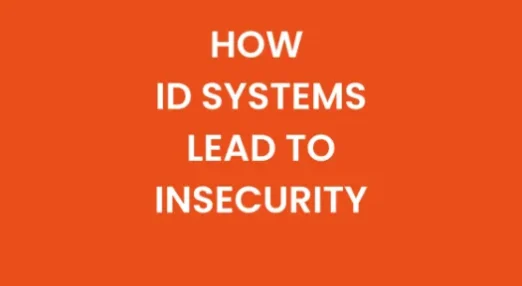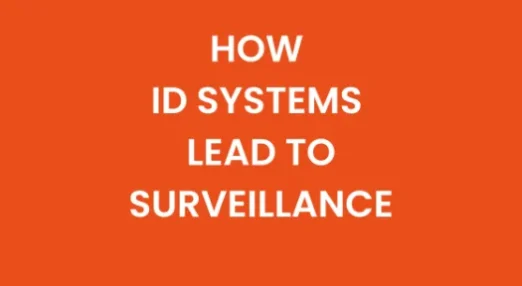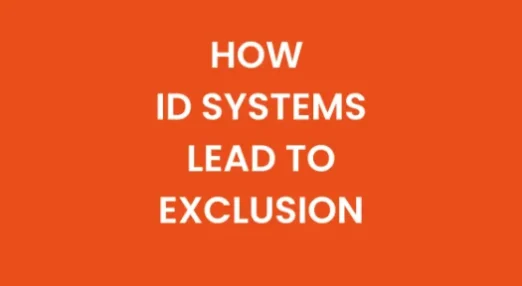Identity Crisis
Identity systems create and facilitate exclusion, insecurity, and surveillance.
On Identity Day, EDRi member Privacy International (PI) with their global network of partners are launching Identity Crisis – PI’s new campaign to change the narrative on identity systems. Around the world Privacy, International and their international network of partners have seen the same story repeat: identity systems creating and facilitating exclusion, insecurity, and surveillance.
And yet, we repeatedly see claims that modern ID systems will solve a huge range of complex problems. All of the evidence that we, and their partners, have collated over the years suggest that those claims have led to people being excluded from vital healthcare, being exposed to new and increasing risks, and to deeply invasive and cruel systems of surveillance.
Exclusion
People’s access to their fundamental rights should not be determined by a single form of ID. When an ID system is required for you to access goods, services, or your fundamental human rights – a logistical issue, an admin error, a poorly designed system, or a system designed to oppress or marginalise can all lead to people being excluded from anything from welfare, medical care, voting, opening a bank account, education, employment, and the list continues.
Insecurity
Modern ID systems can significantly increase the risks people face as they live their day to day lives. Whether through corruption, hacking, mission creep, or poorly considered access by third parties – ID databases can be a goldmine for bad actors. And, as ID systems creep in to every corner of people’s day to day lives, those databases only get more expansive, and more valuable. Linking everything you do back to a single identifier is an absolute gift to those looking to track, exploit and manipulate you.
Surveillance
ID systems collect a significant amount of sensitive data. They can, and are, used to target individuals and monitor entire populations. ID systems are used as tools of surveillance, often leading to disproportionate and unnecessary interference with our privacy and violations of other human rights. They must be regulated to prevent government’s wielding them as a tool of oppression.
The article was first published by Privacy International here.
Visuals credit to Privacy International (CC BY-NC-ND 2.0 UK)
Contribution by: EDRi member Privacy International

Insecurity ID systems create their own reality: they create a situation where ID is needed for more things and more actors, which only increases people’s vulnerability to their data being misused or abused.
Read more
Surveillance ID systems are all too often a smokescreen. They are a tool for giving unprecedented surveillance powers to the police, security services, and other actors.
Read more
Exclusion The fact of the matter is: ID systems will exclude, and the people it’s excluding will be the most vulnerable and marginalised.
Read more